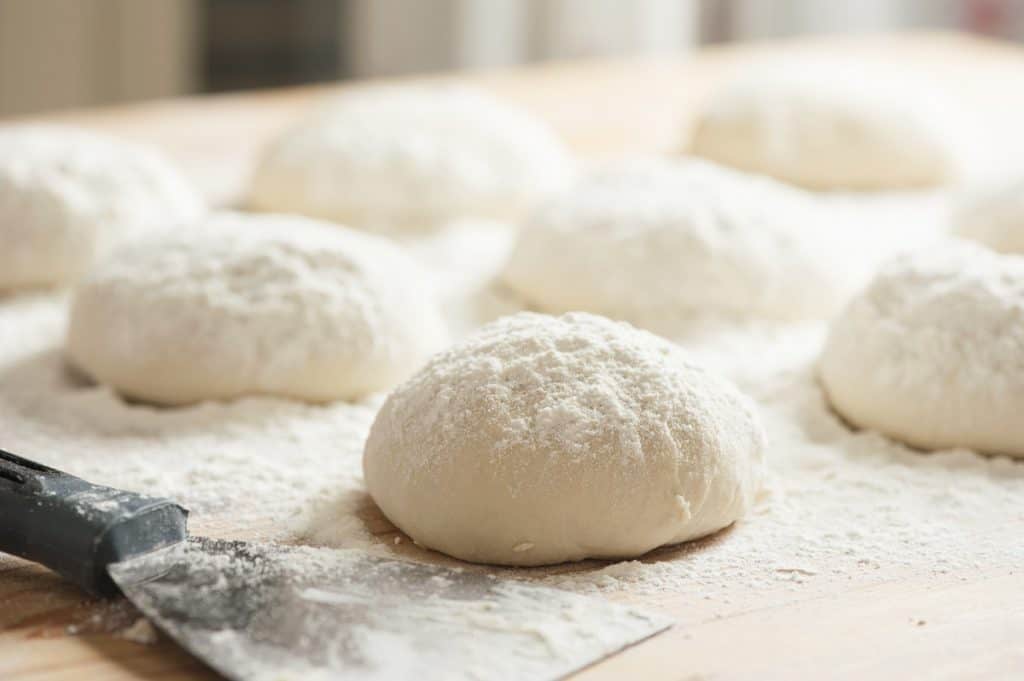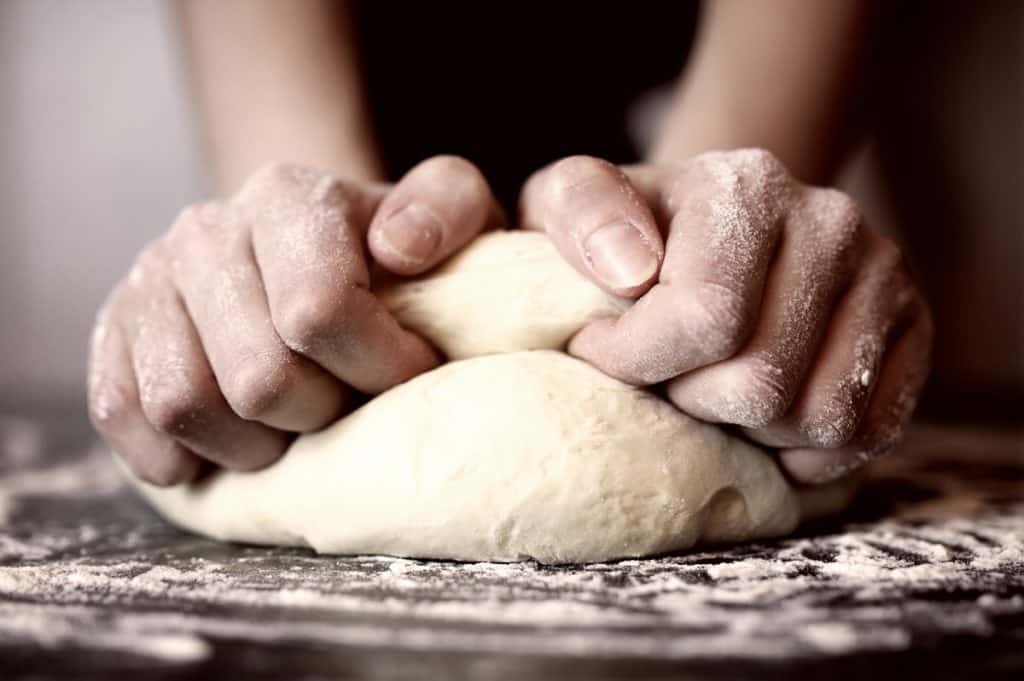This post contains affiliate links.

Many wonder if letting pizza dough stay out overnight will be safe or if it will cause harm to those eating it.
Pizza dough is safe to stay out overnight. Letting pizza dough remain in a room temperature environment will not cause harm to those who later consume it. Though posing no danger to the consumer, leaving pizza dough out overnight may cause the dough to develop a more sour flavor caused by the yeast.
Leaving pizza dough refrigerated is a common practice for many, however, it is beneficial to know how leaving it out may impact the cooking process.
How long can pizza dough be left out?

The longest amount of time pizza dough should be left out unrefrigerated is three hours. This is an average for all types of pizza dough though it does differ depending on the type of dough.
Yeast has multiple purposes when it comes to pizza dough. Yeast both allows the dough to rise properly and prevents bacteria from growing. With a limited amount of yeast, it may allow for more bacteria to enter into the dough. The yeast will provide protection for the pizza dough if it is left overnight and unrefrigerated.
The yeast will be able to kill off bacteria overnight, however, it is not wise to leave the dough out much longer than overnight. Although the dough is capable of staying out longer, it does increase the risk of harmful bacterial growth.
Pizza dough can be left to rest for up to three days before it is unsafe. Even though it is safe to leave dough sitting out for a few days, it is unwise to leave pizza dough out for this long. Leaving your dough out for even just three hours will start to impact the taste and the way it cooks.
How will this impact the taste?
If pizza dough is left out and unrefrigerated for too long, it may result in a sour taste. This tart flavor however is nothing to be alarmed about. The yeast will cause a sour flavor within the dough.
Will it cook the same?
If pizza dough is left out and unrefrigerated for too long, this could result in a number of disastrous ways. One of these ways is it could dry the dough out. However, the more pressing issue is not just the dry dough, but what results from the dry dough.
Leaving unrefrigerated dough out at room temperature causes the dry dough to form a skin around it. When exposed to the air, the water evaporates from the pizza dough which causes a dry layer of skin resulting from the lack of moisture within the dough. This dry skin is not just a result of being left out unrefrigerated, as it can also occur after being left inside the refrigerator. When left out in the refrigerator without being sealed, this same crust can start to form.

As pizza dough being left out overnight and unrefrigerated can result in a dry crust forming around the dough, it will be very difficult to cook with and it will cook unevenly.
Cooking pizza dough with dry skin around it is not ideal. Getting rid of this skin is essential to cook your pizza dough to your liking.
The first step to getting rid of this skin is to create more moisture on the surface of the dough. There is already enough moisture in the middle however the outer layer is what needs to be saved. To do this, simply just add water to the outer layer of the dough.
The second step in this process is to seal the dough in a container, allowing the moisture to set into the dough.
The third step to getting rid of this dry crust is to let the dough sit. Although there is no exact time that works the best for this, allowing the dough to rest for over an hour is the best average time.
By following these steps, it will allow you to turn your once dry dough into the perfectly edible dough!
The longer the pizza dough is being left in a warm temperature environment, the longer it is being left to ferment.
Fermentation is an essential part of cooking pizza dough. Fermentation is what provides the dough with the ideal flavor and correct consistency. Fermentation utilizes yeast and allows the dough to rise. If the fermentation process is not completed correctly, then the pizza dough will not be completed correctly.
Typically, pizza dough is only set aside to ferment for an average of three hours. Therefore an additional amount of time will make it very difficult to cook with.
Does it depend on the type of dough?
The type of pizza dough influences how long it should be left to rest. For instance, pizza dough that is more prevalent in yeast and sugar should be set out longer than other types.
For some types of pizza dough, it should be left out multiple times while others may require it to be left out only one time. The average amount of time to be left out is three hours, however, there are some types of dough that only require one hour!
For example, it is recommended that to cook New York-style crust, the dough should be left out unrefrigerated for several hours. This means that leaving this type of dough out overnight is not only safe to eat, but is also recommended.
On the other hand, within whole wheat pizza dough, a much shorter time allotment is recommended. For the whole wheat dough, it is recommended that it should only be unrefrigerated for a maximum of three hours.
Gluten-free pizza dough, however, has only a one hour recommended time estimate for sitting out.
While all of these different types of dough have different amounts of time for sitting out, they all have one thing in common: it is safe for them to be left overnight, unrefrigerated. Even if this does impact the taste or texture, it will cause no harm.
Ideal environment for the dough overnight
If being left out unrefrigerated is not ideal, then what is?
According to many chefs around the world, the ideal environment for pizza dough is a refrigerator. This refrigerator should not be too cold, or too warm. The ideal temperature is between two degrees Celsius and four degrees Celsius.

Seasoned chefs also agree that under ideal circumstances, it is best to leave the dough in a sealed, refrigerated container for twenty-four hours. This allows the dough time to ferment. Allowing for a proper amount of time and temperature improves both the taste and texture of the pizza dough.
Providing an ideal environment for the pizza dough improves the overall quality and experience the consumer will have once finished.
Although there is no harm in leaving pizza dough out overnight, the ideal environment would be an airtight storage container within a refrigerator. Experienced chefs have found that cold fermentation will produce the best results for pizza dough.
